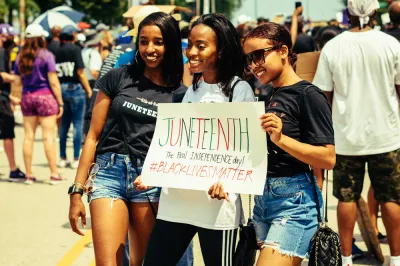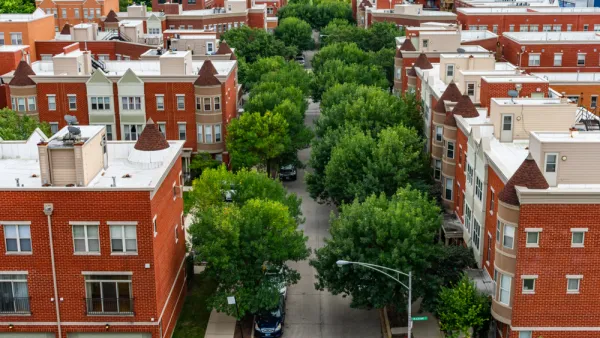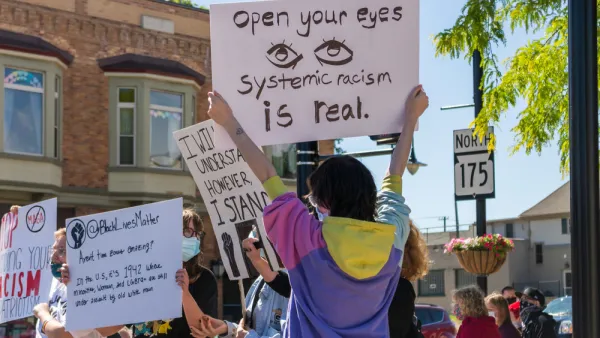On a holiday that commemorates the end of slavery in the United States, the White House marked the occasion by discussion exclusionary zoning.

In a remarkable moment that reveals how far the historical understanding of racism has come in recent years, an article on WhiteHouse.gov commemorates Juneteenth by examining the racial discrimination effect of exclusionary zoning.
Juneteenth, as explained in the article, marks the day a Major General of the Union Army arrived in Galveston, Texas to enforce the Emancipation Proclamation, and free the last enslaved Black people in Texas from bondage.
Given the historic significance of the date, and its increasing relevance as race continues to take central stage in the culture war, it might come as a surprise that zoning is on the mind of the Biden administration. The confrontation with the racism of the country in news media and politics at every level of government in recent years has include an account of the past discrimination and racism of planning policies.
While a nascent effort to undo some of the racist policies of the past is underway in some cities and states, much of which has focused on the exclusionary effects of single-family zoning, the idea zoning reform as a tool for equity is still relatively new in the halls of the federal government. The Biden administration has taken the cause of zoning reform to new levels of visibility by proposing a competitive grant program that would encourage cities to begin to dismantle the tools of exclusionary zoning. The Unlocking Possibilities Program would provide $5 billion in competitive grants as an incentivize for zoning reforms. (The Biden administration's Unlocking Possibilities Program closely follows the Housing Supply and Affordability Act proposed by Senator Amy Klobuchar (D-Minnesota), Senator Tim Kaine (D-Virginia), and Senator Rob Portman (R-Ohio) in March 2021.")
So, the White House Juneteenth article lays out the case for the program and for the movement.
"[I]t is imperative to not lose sight of the fact that we still have much work to do to address the vestiges of slavery and historic discrimination," reads the article. Exclusionary zoning, according to the article, is one of those policies and practices in existence today "that are seemingly non-discriminatory on their face but still negatively affect many families of color, especially Black families."
The article provides a history, full of links to research sources, about the evolution of exclusionary zoning as a tool of racism and discrimination.
FULL STORY: Exclusionary Zoning: Its Effect on Racial Discrimination in the Housing Market

Analysis: Cybertruck Fatality Rate Far Exceeds That of Ford Pinto
The Tesla Cybertruck was recalled seven times last year.

National Parks Layoffs Will Cause Communities to Lose Billions
Thousands of essential park workers were laid off this week, just before the busy spring break season.

Retro-silient?: America’s First “Eco-burb,” The Woodlands Turns 50
A master-planned community north of Houston offers lessons on green infrastructure and resilient design, but falls short of its founder’s lofty affordability and walkability goals.

Test News Post 1
This is a summary

Analysis: Cybertruck Fatality Rate Far Exceeds That of Ford Pinto
The Tesla Cybertruck was recalled seven times last year.

Test News Headline 46
Test for the image on the front page.
Urban Design for Planners 1: Software Tools
This six-course series explores essential urban design concepts using open source software and equips planners with the tools they need to participate fully in the urban design process.
Planning for Universal Design
Learn the tools for implementing Universal Design in planning regulations.
EMC Planning Group, Inc.
Planetizen
Planetizen
Mpact (formerly Rail~Volution)
Great Falls Development Authority, Inc.
HUDs Office of Policy Development and Research
NYU Wagner Graduate School of Public Service




























